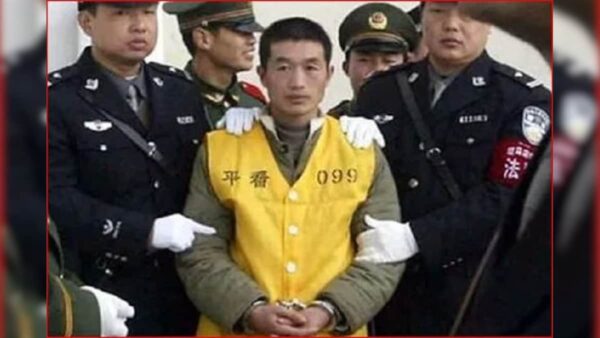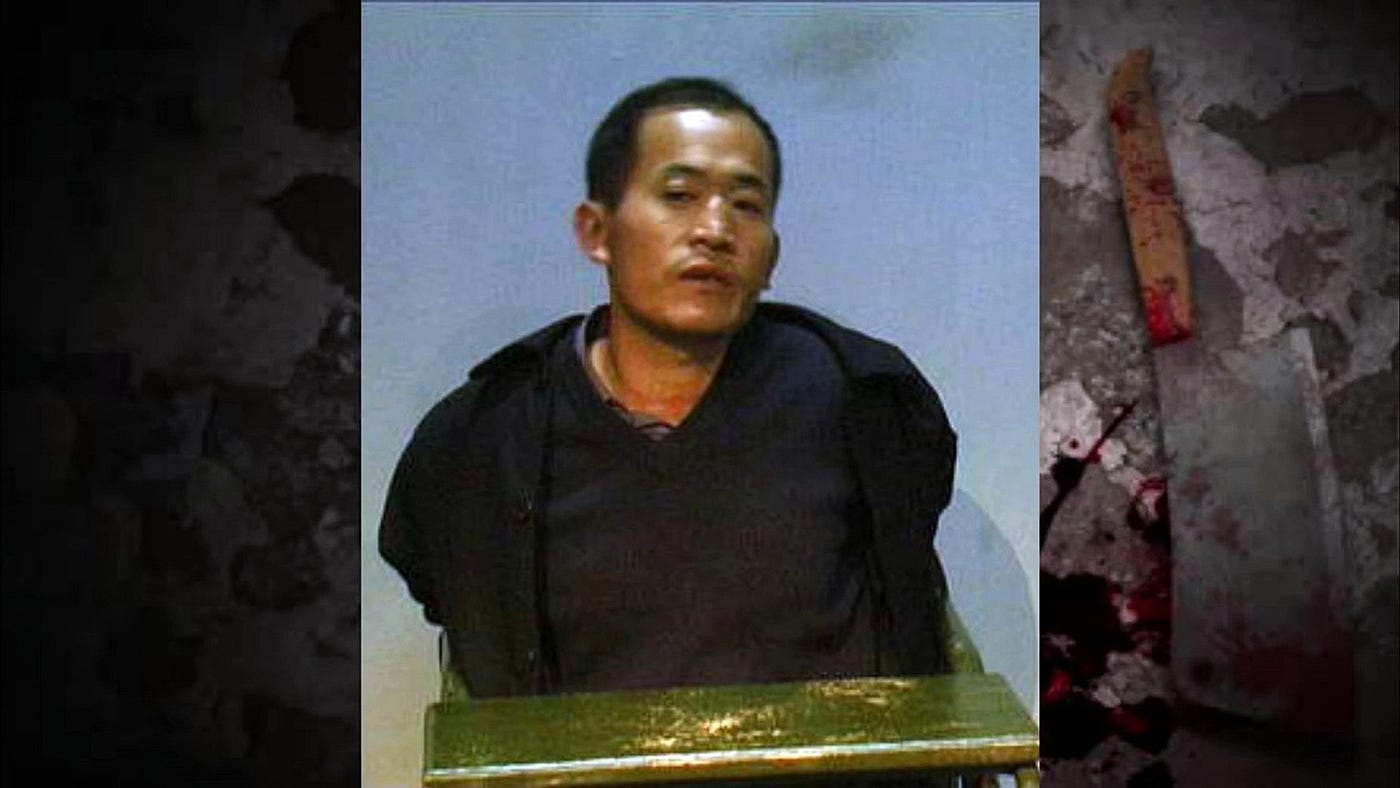A deeply sensitive account of Yang Xinhai, China’s “Monster Killer.” Explore his troubled childhood, his emotional collapse, and the horrifying crimes.

A Monster Was Not Born Overnight — He Slowly Emerged
Some criminals terrify the world not just because of what they did, but because of how they quietly walked among us before the darkness broke through.
Yang Xinhai was one of them.
His name became synonymous with fear — yet the human life behind the monster was filled with emptiness, abandonment, and a slow emotional breakdown that no one noticed.
While we explore this terrifying story, we’re reminded of how human life can take tragic turns, much like the haunting journeys described in https://recital.blog/when-love-became-a-curse-the-haunting-story/ — where pain shapes fate in unexpected ways, though in completely different directions.
The Childhood of a Ghost in His Own Home
Yang Xinhai was born in 1968 in a poor farming family in Henan Province.
His parents had almost nothing — seven children, one tiny home, and endless financial struggle.
From childhood:
- He rarely spoke
- He avoided eye contact
- He had no friends
- He seemed disconnected from reality
Teachers later recalled him as a “silent presence,” a boy who looked through people rather than at them.
He dropped out of school by age 11 to work in farms and factories.
His family was too poor to guide him, and he was too emotionally fragile to cope with the harshness of life.
By 17, he left home and became a lifelong drifter, sleeping in factories, fields, train stations, and abandoned buildings.
A Life of Rejection That Slowly Poisoned His Mind
The turning points in Yang’s life were not sudden — they were painful rejections that broke him piece by piece.
1. A Heartbreaking Relationship
Yang once fell in love with a woman while working as a migrant laborer.
For the first time, he felt seen.
But when she discovered his criminal past — a minor theft — she left him instantly.
This shattered him.
Yang reportedly said this was the moment his “soul snapped.”
Love turned into bitterness.
Rejection turned into hatred for society.
This emotional fracture echoes the kind of tragic endings you capture in posts like https://recital.blog/the-love-that-died-in-the-wilderness/ — except Yang chose a path of destruction.
2. Years in Prison That Deepened His Darkness
Yang was arrested multiple times for theft and burglary.
Each time he came out of prison, he was angrier, colder, and more detached from reality.
He once told investigators:
“Prison didn’t teach me anything. It only showed me how cruel the world is.”
His mental state was deteriorating.
He no longer cared about life — including his own.
From a Broken Man to a Silent Predator
Between 1999 and 2003, Yang Xinhai embarked on one of the deadliest killing sprees in modern history.
He moved across China, targeting isolated homes in rural areas.
But what made him especially terrifying was his method:
He always struck at night.
He always chose homes with the lights off.
He always worked alone.
He left no witnesses behind.
Villagers described the fear as “a shadow that entered homes without warning.”
Families began sleeping in shifts.
Men stood guard outside their houses at night.
Entire villages felt like they were living inside a nightmare.
Reports about his crimes later appeared in international outlets like www.america112.com, highlighting how China struggled to respond to a killer who moved like a ghost.
Chilling Incidents That Showed His Disturbing Mind
Though we must remain sensitive, there were several deeply unsettling patterns:
1. He often returned to crime scenes
Investigators found that Yang sometimes came back to areas he attacked weeks earlier, watching how police behaved.
He felt invisible.
2. He blended in perfectly
Despite being one of the most wanted men in China, Yang looked ordinary:
- thin
- quiet
- clean-shaven
- emotionless
People who met him said he seemed “empty, but polite.”
3. He chose families intentionally
Yang targeted families because “it caused more fear,” a statement he gave calmly during interrogation.
The Night of His Arrest — Pure Accident
In November 2003, Yang was stopped by police during a routine inspection.
He gave evasive answers, and officers decided to search him.
Inside his pockets, they found a hidden metal tool and stolen items linked to earlier crimes.
Even then, Yang remained calm.
He later confessed to 67 murders with an eerie sense of detachment.
Officers said:
“He spoke as if he was describing someone else’s life.”
Inside the Mind of Yang Xinhai — A Hollow Space
Psychologists who studied him described:
- No empathy
- No guilt
- No emotional memory
- No capacity for love
- High intelligence
- Deep antisocial traits
- A damaged childhood
- A hatred for society
He told police:
“When I kill people, I feel nothing.”
To many, this emotionless void was scarier than the crimes themselves.
His Execution — And the Fear That Remains
Yang Xinhai was executed on February 14, 2004.
The date, ironically, was Valentine’s Day — a day celebrating love and connection.
But his story didn’t end with his execution.
It became a case studied globally, a warning about:
- untreated trauma
- extreme loneliness
- mental illness
- social neglect
- the dark corners of the human mind
Even today, people in the villages he once visited still remember the days when they locked their doors before sunset.
What Yang Xinhai’s Story Teaches Us
His story is not just about brutality —
it’s about how a human life can fall apart quietly.
He was not a criminal mastermind.
He was a broken man who let darkness consume him.
The tragedy is not only in his crimes
but in the years before them —
the years when he could have been helped, healed, or redirected.
But no one saw him.
No one understood him.
No one intervened.

